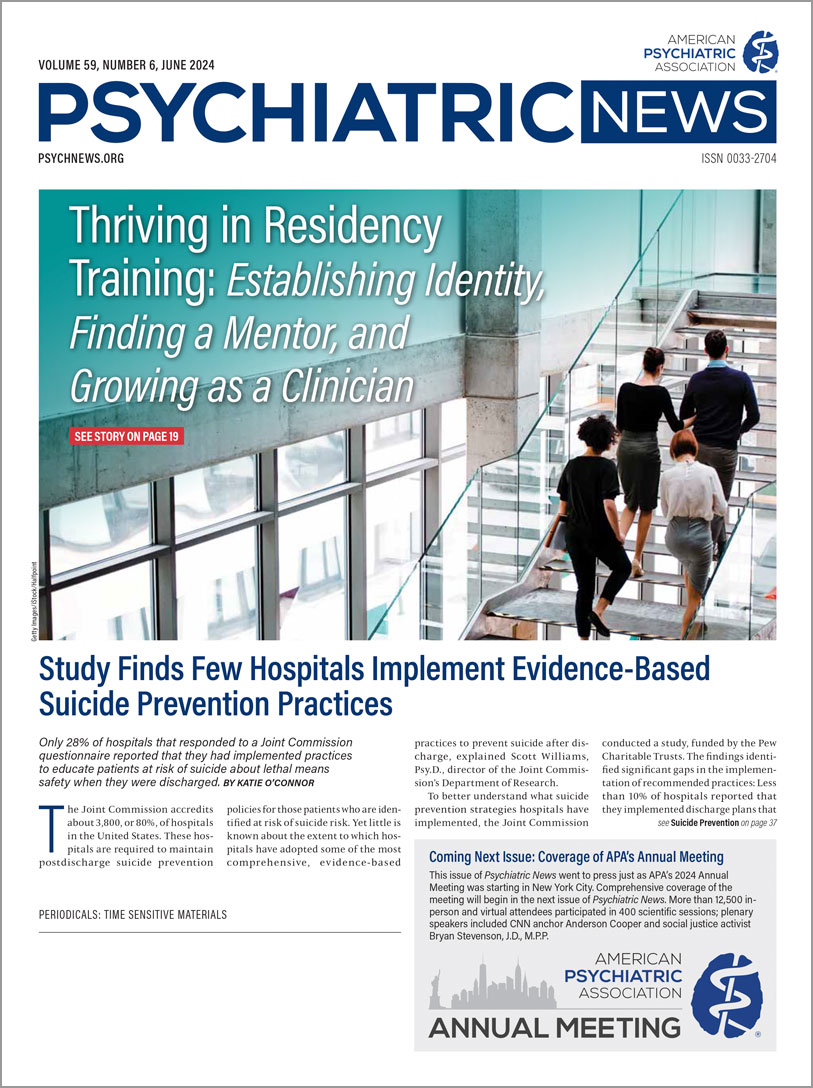Akathisia—a feeling of restlessness that is often accompanied by movements like rocking or pacing—is a common side effect of antipsychotic medications. A
meta-analysis published in
JAMA Network Open suggests that mirtazapine, biperiden, and vitamin B6 are the three most effective treatment options for antipsychotic-induced akathisia.
Cyril Gerolymos, M.D., a geriatric psychiatrist at Aix-Marseille Université in Marseille, France, and colleagues compiled data from 15 randomized clinical trials testing potential pharmacotherapies for akathisia in people taking antipsychotics. The combined data included 492 patients, 324 of whom received an active drug and 168 received placebo. The researchers evaluated 10 medications: biperiden, clonazepam, cyproheptadine, mianserin, mirtazapine, propranolol, trazodone, valproate, vitamin B6, and zolmitriptan.
The researchers found evidence to suggest that six medications were more effective than placebo in treating antipsychotic-induced akathisia. In order of superiority over placebo, they are as follows:
•
mirtazapine 15 mg per day for at least five days
•
biperiden 6 mg per day for at least 14 days
•
vitamin B6 600 mg to 1,200 mg per day for at least five days
•
mianserin 15 mg per day for at least five days
•
trazodone 50 mg per day for at least five days
•
propranolol 20 mg per day for at least six days
Cyproheptadine also appeared to be potentially effective, but data were insufficient to fully support its efficacy. Clonazepam, valproate, and zolmitriptan did not demonstrate superiority over placebo.
“[M]irtazapine consistently ranked first in both the main analysis and all subgroup analyses. However, mirtazapine may be poorly tolerated due to its sedative effects and the potential for weight gain,” Gerolymos and colleagues wrote, noting that vitamin B6 may be a better option.
Yet high doses of vitamin B6 are not without risks, said Joseph Goldberg, M.D., a clinical professor of psychiatry at Icahn School of Medicine at Mount Sinai in New York City, who was not involved in the research. He told Psychiatric News that he would be hesitant to “mainstream” high-dose vitamin B6 as a first-line standard option for akathisia based on the two small studies in the meta-analysis. The studies had a total of 33 subjects who received 600 mg to 1,200 mg of vitamin B6 for only five days.
“In those short-term high dose trials … no side effects were reported. But elsewhere, high doses of vitamin B6 of more than 1,000 mg per day for extended periods of time have been associated with the development of peripheral neuropathy and ataxia,” Goldberg said. “It might be a safe and reasonable short-term option for some patients, with monitoring for neurotoxicity, but if it proves not to be effective, one should move on to a potentially more efficacious alternative.”
The researchers acknowledged that health professionals should be prudent about interpreting their results because of the small sample size, a sentiment echoed by Goldberg.
“Small sample-size studies run the risk of reporting larger-than-expected effect sizes that may not necessarily hold up with bigger sample sizes or in replication studies,” Goldberg said. “Unusual findings also can pop up in case reports or small sample size studies that make it harder to know cause and effect with confidence. For example, while the authors note the apparent value of mirtazapine to treat akathisia, there is also a handful of single case reports alleging that mirtazapine can also cause akathisia [which would be] treatable with propranolol.”
Goldberg said that the meta-analysis by Gerolymos and colleagues is a helpful introduction to thinking about the options but does not carry the weight of comparative head-to-head studies or large replication trials.
“[Psychiatrists] must appreciate that underpowered studies such as these do not point to superiority of one compound over another, but rather that many viable options may exist to treat akathisia,” he said.
The simplest solution for treating akathisia is to lower the dose of the medication causing it, Goldberg added.
“I favor reducing antipsychotic doses as a first step, and then considering whether a switch to a less-offensive agent is a viable option, before adding another medicine [that may have] its own side effects to treat akathisia,” he said.
Goldberg recommended that psychiatrists consider the potential benefits of combining interventions such as a beta blocker plus mirtazapine to manage significant akathisia, especially when more conservative approaches are not feasible or do not work.
The researchers could not be reached for comment. They did not report outside funding for this study. ■

